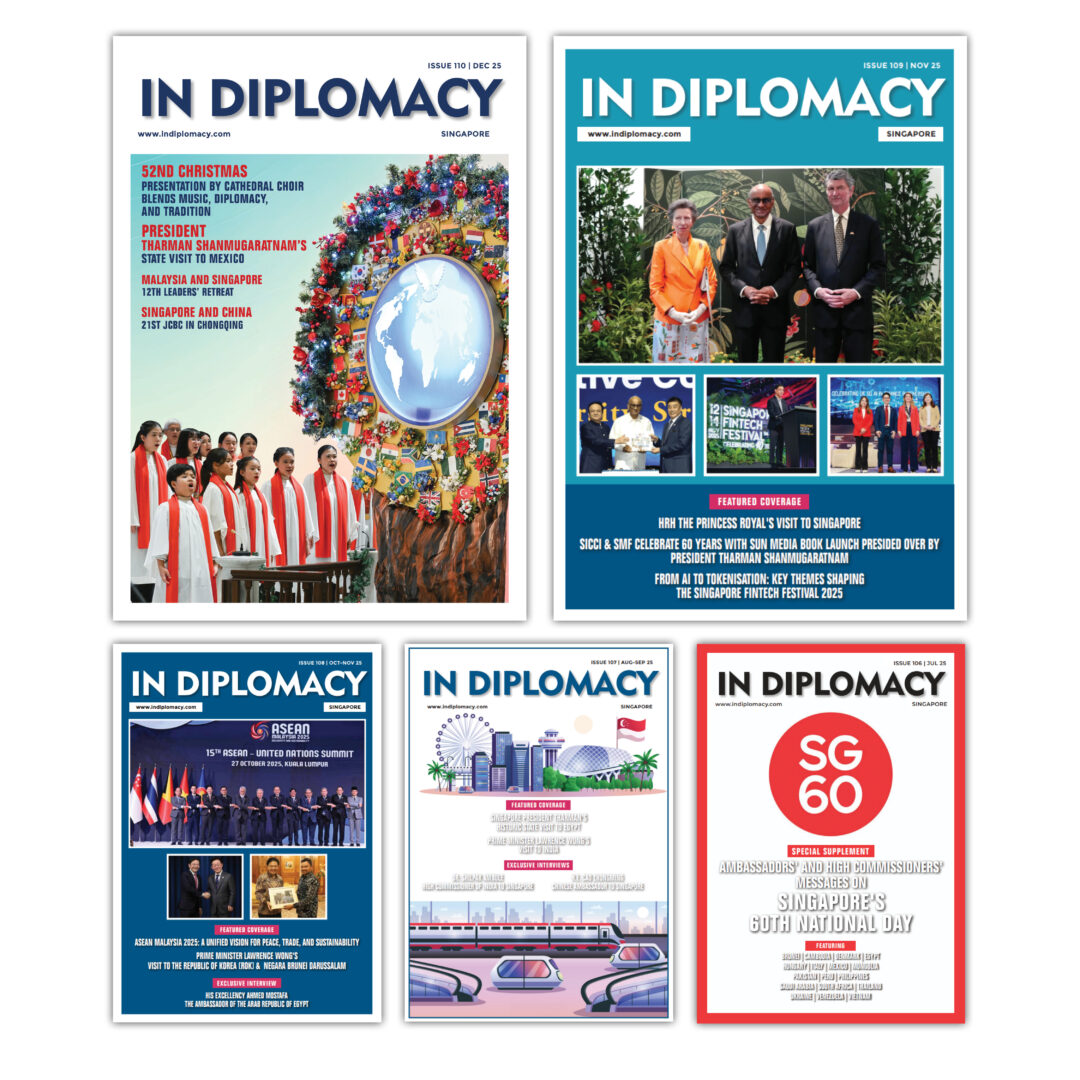
IMDA collaborates with industry leaders to pioneer transformative 5G solutions in healthcare, manufacturing, supply chain, and logistics under the 5G Innovation Programme
Singapore, 27 November 2023 – The Infocomm Media Development Authority (IMDA) has unveiled groundbreaking 5G use-cases in collaboration with key enterprises, marking a significant leap in Singapore’s digital transformation. The 5G Innovation Programme, initiated by IMDA in 2021 with a budget of S$30 million, has awarded three first-of-its-kind 5G solutions aimed at revolutionizing healthcare, Industry 4.0-driven manufacturing, and logistics.
Dr. Ong Chen Hui, Assistant Chief Executive of Biztech Group at IMDA, expressed the agency’s commitment to building Singapore’s capabilities across sectors through emerging technologies like 5G. Since the launch of the 5G Innovation Programme, 13 first-of-its-kind solutions have been awarded, driving transformation across various industries in Singapore.
In the healthcare sector, the National University Health System (NUHS), in partnership with Microsoft, Singtel, and apoQlar GmbH, has successfully deployed Asia Pacific’s first indoor private Enterprise 5G mobile edge computing (MEC) for Mixed Reality and Holomedicine capabilities. This technology enhances surgical planning, patient education, safety, and overall healthcare experiences.
Republic Power, in collaboration with IMDA, has introduced Asia’s first 5G-enabled unmanned pre-screening and teleconsultation medical booth (“Medbots”). These booths, equipped with state-of-the-art hygiene and safety systems, aim to facilitate remote health screening and consultations, reducing congestion at clinics.
In the Industry 4.0-driven sectors, IMDA has partnered with ST Engineering and DB Schenker to implement 5G-enabled solutions. DB Schenker is set to develop Singapore’s first 5G-enabled Digital Twin for warehousing in collaboration with HiverLab. This technology allows stakeholders to visualize and monitor warehouse assets, optimizing operations and reducing customer query response times.
ST Engineering’s 5G-Enabled Industry 4.0 Smart Factory introduces one of Singapore’s first 5G-enabled collaborative robots, enhancing precision manufacturing processes. These collaborative robots, equipped with robotic arms, contribute to workplace efficiency and safety.
Following are the details of the projects:
NUHS: Asia Pacific’s first indoor private Enterprise 5G mobile edge computing (MEC) for Mixed Reality and Holomedicine capabilities in health tech
1. The use of Mixed Reality technology (MR) in healthcare is an up-and-coming area of development. Coined as Holomedicine, this technology makes use of holographic displays and images to enhance and augment healthcare delivery. IMDA is partnering NUHS, Microsoft, Singtel and apoQlar GmbH, a developer of medical mixed reality platform, to develop new 5G-enabled Holomedicine capabilities that leverage advanced remote rendering capabilities on MR devices such as Microsoft’s HoloLens 2.
2. The use of 5G-enabled Holomedicine has helped surgeons to better visualise a patient’s organs in high-resolution 3D render without any disruption or lag. Doctors in NUHS have been using the technology to streamline the planning of surgical operations, improve patient education and safety, and create a more intuitive and immersive environment for surgical training and research with 5G. Beyond the operating theatres, capabilities such as enhanced visualization of the patient’s veins during blood taking procedures, advanced point-of-care ultrasound imaging capabilities, and patient education and counselling have been made possible with Mixed Reality devices and a secured high-speed data network. The NUHS indoor private 5G Enterprise and MEC Network has been deployed in ten Operating Theatres since August 2023, and three inpatient wards in November 2023.
3. Dr Gao Yujia, Assistant Group Chief Technology Officer and Director for Holomedicine Program at NUHS said: “Holomedicine technology relies heavily on data, which can pose challenges in bandwidth management. Our proactive strategy involves integrating our Holomedicine devices with 5G. This alignment has been instrumental in significantly enhancing transmission speed and real-time data processing, as we work towards unlocking the full potential of this groundbreaking technology. This will empower us to strengthen healthcare delivery, research, and education.” DB Schenker: [New] Singapore’s first 5G-enabled Digital Twin for warehousing
4. Together with home-grown Extended Reality company HiverLab, DB Schenker will develop a 5G-enabled Digital Twin of its Red Lion warehouse in Singapore. The Digital Twin allows both the company’s internal stakeholders and consumers to visualise and inspect the status of warehouse assets via their mobile devices and PCs. With this, DB Schenker will optimise its warehouse operations and reduce the turnaround time on customer queries such as storage space requests.
ST Engineering: One of Singapore’s first 5G enabled collaborative robots for Smart Factory
5. ST Engineering’s 5G-Enabled, Industry 4.0 Smart Factory looks to increase productivity and efficiency across our precision manufacturing processes through the automation of time-consuming manual work and through the deployment of advanced robotics and IOT solutions.
6. 5G-enabled collaborative robots (or cobots) equipped with robotic arms ensure correct components are selected and transported to the next location without human intervention – improving workplace efficiency and safety. 5G supported Video analytics and IOT devices will enhance speed and accuracy of quality inspections and stock taking; and new tools such as 5G Augmented Reality Glasses are also being deployed, enabling new collaboration and remote assistance possibilities.
Republic Power: Asia’s first 5G-enabled unmanned pre-screening and teleconsultation medical booth (“Medbots”) with state-of-the-art hygiene and safety system
7. Republic Power’s 5G-enabled unmanned pre-screening and teleconsultation medical booth incorporating accredited medical devices will enable medical clinics to provide off-site and remote health screening and patient care, reducing congestion and wait time at clinics. The unmanned booth will encourage Singaporeans to go for basic medical screening by offering them more accessibility to discreet health screening channels (Hospital Without Walls) to help to reduce the overall travel time and cost.
8. To ensure peace of mind and enhanced user experience, the booths will be equipped with 5G-enabled state-of-the-art hygiene and safety IOT devices and AI system to ensure safety and cleanliness. Such unmanned medical booths can be easily deployed and used for other medical purposes such as health and infectious disease screening for travelers and foreign workers at airports and dormitories etc. The first-ever Holomedicine 5G Healthcare Summit, hosted in Singapore
9. IMDA co-organised the first-ever Holomedicine and 5G healthcare summit with the Holomedicine Association, put together with NUHS and GSMA APAC 5G Industry Community. This summit provides a platform not only to showcase the latest development in extended reality technologies, but also for participants to learn from industry leaders on how they are leveraging on 5G technology; and how some of these lessons can be applied to the healthcare sector.
Source – IMDA














